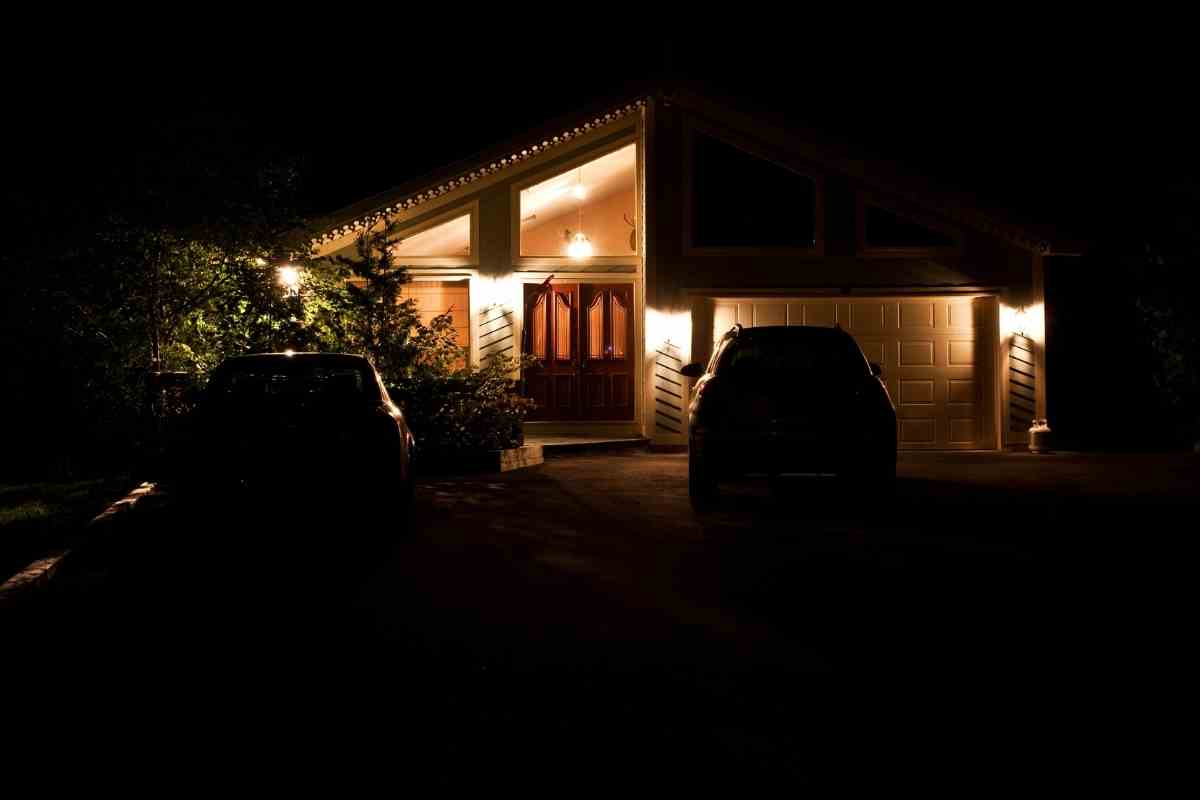When it’s time to sleep, homeowners have to decide whether to leave their porch lights on or switch them off.
Most people will look up the internet to solve this dilemma. That said, the answers you find in online forums are contradictory.
For instance, those who support leaving lights on argue that it’s an effective burglar deterrent.
On the other hand, those who support switching off lights say that it diverts burglars’ attention from your home. So, who’s right?
Read on to discover why you shouldn’t leave your porch lights on all night.
Lights attract burglars
There’s no proof that lights deter burglars from breaking into your property.
Some well-lit neighborhoods have the worst crime rates.
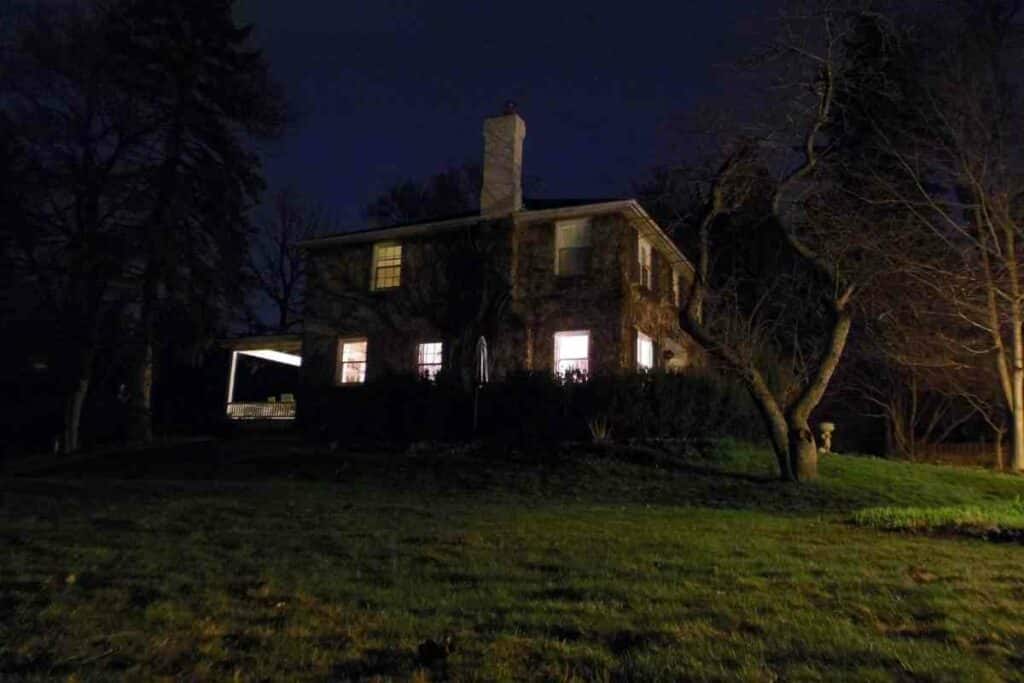
Also, most burglaries occur when there’s plenty of light during the day.
In reality, lights might attract a criminal’s attention. How? Most people sleep with lights off.
If you leave your porch light on, the housebreaker will assume nobody’s home, prompting them to enter.
Lights assist intruders
Consider this scene – a person trying to enter a dark compound and another attempting to enter a well-lit area.
Who’s more likely to get noticed?
Obviously, you’ll see the person going into a dark compound because they have to turn on a flashlight.
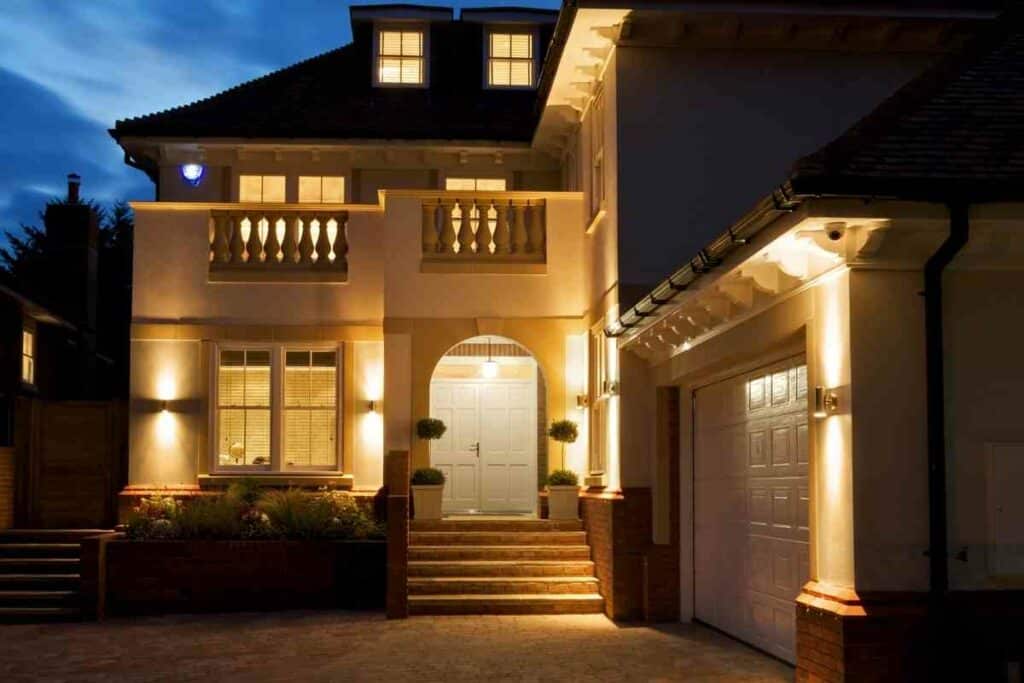
Now, apply the analogy above to burglars. It is easier to notice burglars when your porch light is off since they must use a torch to see clearly.
On the other hand, an intruder going into a house whose lights are on has a free pass – you won’t notice them until they’re too close or inside your home.
Heads Up! If you live in a rural area, leaving your porch light on at night could be disadvantageous. The light attracts attention and helps them see their actions when they get to your home.
The intruders will be more courageous because they know you live in seclusion.
Lights can annoy neighbours
You might be comfortable leaving your lights on, but it might not sit well with your neighbor.
As mentioned earlier, most people like sleeping with lights off.
If your porch light illuminates your neighbor’s backyard, they better like it.
Otherwise, you could face civil suits for the right to quiet enjoyment.
Even if they don’t take the matter to court, you risk developing bad blood (which you don’t want) or getting evicted by the landlord.
Lights attract bugs
Nothing is as annoying as cleaning after moths and other nocturnal insects that like flying around light bulbs.
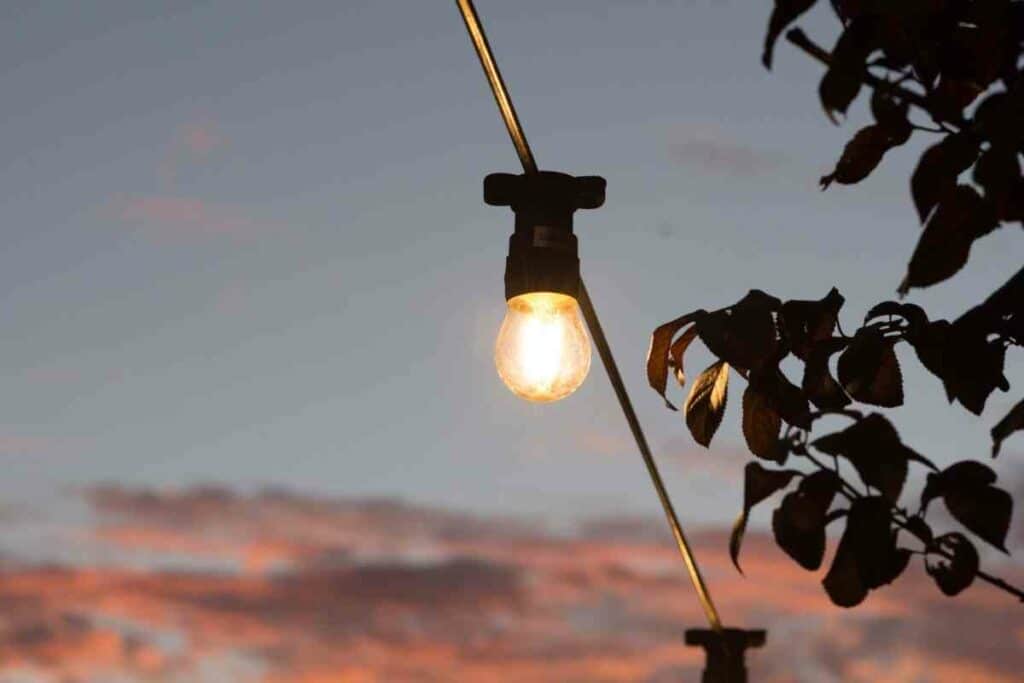
The problem starts with swarms of bugs swatting around the light, and most of them drop dead, leaving your porch dirty.
If you don’t want to wake up to an untidy porch, consider switching the lights off before bedtime.
Lights consume electricity
The cost of living is rising, and many people are looking for ways to cut expenses.
One such method is by reducing your electricity consumption.
Although modern technology produces energy-efficient bulbs, they still add to your monthly bill.
As mentioned above, it’s wise to switch off porch lights because they’re expendable and somewhat disadvantageous.
The little you save can be helpful for other projects.
What Are The Alternatives?
Leaving your porch light on at night isn’t a solution to your home security problems – in reality, it can be harmful and expensive.
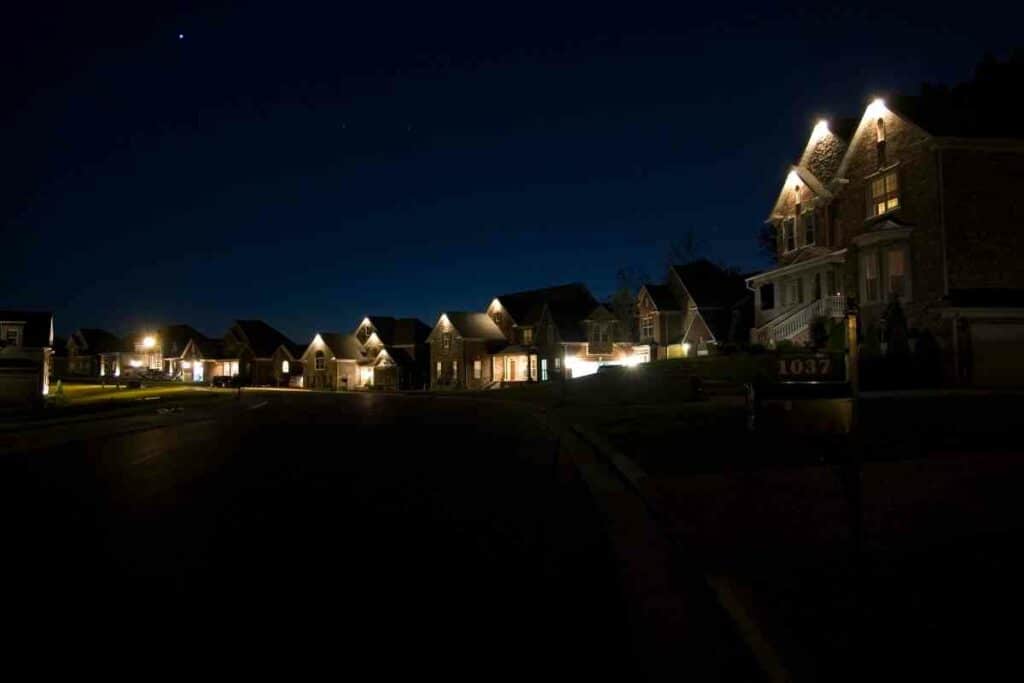
Here are some alternatives that make your home secure.
Motion sensor porch lights
Motion-sensing technology isn’t new, but it’s effective in improving home security.
You can deter burglars from breaking in by placing these lights at strategic entry points in your home, such as the front and back doors and low windows.
As the name suggests, these lights have inbuilt motion sensors.
They switch on whenever they detect movement within their range. The sudden light can scare housebreakers away.
However, motion detectors can’t differentiate humans from animals. If a raccoon gets in range, you’ll get a false alarm.
Also, they’re only helpful if there’s somebody at home or a neighbor spots the thief.
Use smart lights to mimic human actions
Installing intelligent lights with timers can help improve home security.
These lights leverage artificial intelligence to mimic human activity, such that an outsider would think that the house has occupants when it’s not.
For Example – You can set the porch light on in the evening and off just before expected bedtime. Likewise, the indoor lights can go on and off in different rooms to create the impression that someone is moving around.
These timers are invaluable if you’re planning a vacation.
You can also use the timer on other appliances, such as your TV or music system.
A burglar is less likely to break into a house if they hear TV sounds.
Know your neighbors
The best and least expensive way of securing your home is by forming good relationships with your neighbors.
Motion sensors and smart lights are cool, but the person next door will call you or the police if they see unusual activity in your home.
When you move into a new home, please introduce yourself to neighbors so that they know who goes in and out of your property.
It’s also wise to inform them if you’re on vacation.
FBI Statistics show that a lot of burglaries occur during the daytime.
However, most people leave their alarms off when they go to work.
This is where neighbors, especially teens, work at home people and retired folk, can help secure your home.
Wrapping Up
The most common reasons for leaving porch lights on at night are safety and property protection.
However, security experts justifiably argue that it doesn’t help to let the lights burn until morning. In fact, it could have adverse effects.
Ensure that you turn off your porch lights before sleeping. This reduces the risk of burglary. If you must, invest in smart lights with timers to mimic human movements.
More importantly, be on good terms with your neighbors – they’re the most likely to alert you of an intrusion, especially when you aren’t home.
